At the beginning of a new year and decade, property’s leading lights reveal their hopes, expectations and resolutions for 2020 in the first of a two-part special running over the next two weeks.
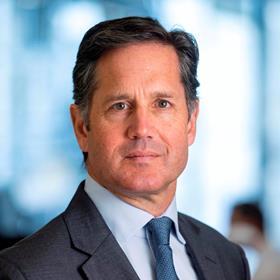
Christopher Daniel
Founding partner, Quadrant
With a plentiful supply of capital, the industry should be careful to avoid irrational exuberance. Securing value-driven opportunities across the office, retail and leisure real estate sectors is a prudent strategy as markets are still sensitive. As a business, we expanded last year and hope to continue this growth. I also hope that the industry takes a more proactive approach when it comes to sustainability.
Leisure is a natural companion to retail as shopping is no longer just a necessity but an experience and we are finding ‘retailtainment’ becoming the preferred choice. Shopping centres and retail parks are perhaps best placed to leverage this trend as they can provide consumers with multiple retail experiences together with an ever-evolving leisure offering.
The growing consumer emphasis on experience is what first drew us, in 2016, to invest in Birmingham’s Star City, a family leisure and entertainment complex that is the largest regional scheme of its kind in the UK.
Resolutions: I would like to see businesses taking more time to support charitable initiatives and relating to the communities we work hard to cultivate and develop.
At Quadrant, we are not just giving back to the community but fostering a culture of compassion and greater social cohesion.
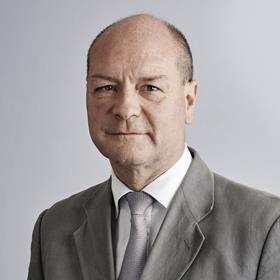
David Delaney
Chief executive, IPSX
The investment fundamentals supporting UK assets in general and real estate in particular are compelling – attractive returns compared with other asset classes are hard to argue with.
In 2020, we will see IPSX established as a new stock exchange for single real estate assets, democratising real estate investment for institutional and retail investors that have been unable to buy illiquid properties.
These investors will be able to buy into and sell out of liquid, specialised stocks, benefiting from real clarity over valuations, asset management and investment management for the first time.
Resolutions: With an ESG focus in mind, my aim in 2020 will be to reduce my family’s carbon footprint.
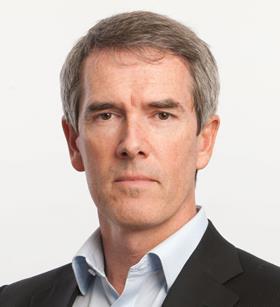
Marc Gilbard
Chief executive, Moorfield Group
I hope the recessionary environment we are currently experiencing in much of the developed world is reflecting a soft economic landing and is not disguising anything more severe – at worse, an impending ‘Black Swan’ event.
I want to see interest rates and inflation remain low (not negative) and ongoing employment and wage growth so consumers can help business boost GDP and investors can be more confident in their commitment decisions. I also hope government has learned from the past and seeks expert industry advice before making policy decisions where collateral damage can occur from unintended but foreseen consequences.
For real estate, I hope we understand its true value as an operationally exposed and complex investment, and that the shorter leases and higher life cycle costs do not result in the need to seek higher yields from a gross income perspective.
I expect to remain in a low-growth, low-inflation and low-interest-rate environment with overall investment demand focused at the lower end of the risk curve.
By the end of the year, I believe the investment appetite for risk will have increased as greater levels of economic and corporate earnings growth are forecast.
I expect the relationship between the UK and rest of the world, especially the EU, to be better than currently anticipated.
I expect real estate sectors to continue to be disrupted, materially more pain in most areas of retail and for the rise of the ‘alternatives’ to continue unabated. Real estate is now so much more than retail, office and industrial.
Resolutions: To remain at the vanguard of the changing real estate landscape by translating demographic needs, societal shifts, technological change and other disruptors into investment opportunity.
This will include our approach to CSR, not just because it is essential to investment and occupational demand but because we feel we have an ethical and generational responsibility.
My personal resolution is to lead Moorfield with energy and integrity, from both a business and cultural perspective.
I want everyone at Moorfield to work effectively, enjoy life and fully support the direction of our corporate goals and moral compass.
After 35 years in the real estate industry, I also look forward to continue giving back through mentoring, sponsorship and charitable activities.
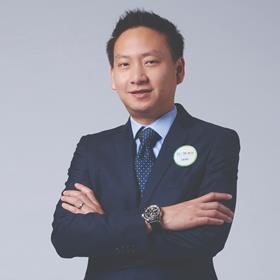
Heng Leong Cheong
Chief executive, EcoWorld London
I hope for a clear outcome to Brexit followed by a sustained period of prosperity for the UK. I hope that this will allow the nation to restore ties and bridge differences as it renews its drive for a positive future.
I hope to see greater collaboration between local authorities and developers. Solving this country’s housing crisis hinges on working together to ensure the best possible outcome for residents.
At EcoWorld London, I hope that our efforts to focus on quality of design and product will stand us in good stead. Finally, I hope 2020 sees Manchester United make their return to the glory days of the last three decades.
I expect the pound to be less volatile. As greater clarity on Brexit emerges, I expect this will lead to more confidence in the UK market from consumers and business. I expect there to be more investment in the sector from both home and abroad across both open market and BTR.
At EcoWorld London, it is looking like an incredibly busy year ahead for my fantastic team. In 2020, we have numerous new schemes and ventures launching and I am confident of a good year as we used 2019 to lay a solid platform for the business.
Resolutions: I have challenged the team at EcoWorld London to take a bolder and more creative approach to our projects in London from the design phase to the place vision and delivery.
I want to demonstrate confidence in the places we are creating for people to call their home and to ensure we create an enduring legacy for the local communities and people who live in them. EcoWorld London will also strive to be a more inclusive and diverse company.
From a personal perspective, my wife and I are expecting our third child, so I want to try and spend more time with my young family and enjoy having three children under the age of four.

Emily Newton
Associate director, Assael Architecture
Wellbeing-conscious architecture must be at the forefront of our thinking. We’ve already seen wellbeing become increasingly important for many of our clients.
Many are now investing to ensure their buildings are ‘wellness accredited’ by incorporating wellbeing into the early stages of design and I can only see this trend continuing strongly. Wellbeing is also something that I hope to see increasingly recognised by employers in the profession.
Many architects suffer from the issues of burnout from high-pressure work and study, and I hope that 2020 will see more practices start reflecting on how they can improve their employees’ mental health and wellbeing as a whole.
It’s no secret that the UK’s high streets in their current form are suffering, and while we’ve heard a lot of chatter about the power mixed-use schemes have to breathe life back into our town centres, so far there has been very little concrete action seen. I believe that this is about to change in 2020.
With the election promise of delivering a million new homes over the next five years, we as a practice can now take this opportunity to explore innovative housing projects that will reactivate the high street.
Mixed-use, particularly, is a concept I think we will start to see become a reality as investment in these kinds of large-scale projects starts to grow. Furthermore, the rise of alternative residential asset classes such as later living, co-living, student accommodation and BTR all have community at their core, and blending these residential projects in with existing town centres will make a lot of sense over the next decade.
Resolutions: As a new mum, my life has changed – in a delightful way – over the past few months. I’m currently on maternity leave, but as I look ahead to my return to work in the summer, I’m conscious that new parents like myself face challenges when returning from maternity leave.
I’m fortunate to work for a company that promotes, and is supportive of, work-life balance for its employees, particularly new parents. There’s a long way to go to change this industry-wide. I’m passionate about changing that.
My resolution is to plan, prepare and adapt so that I can rise to this new chapter in my life. I’m already looking at how I can reduce my commute to the office and how to make efficiencies in my working practices. I’m looking forward to returning to my role at Assael and enjoying my time with my family.
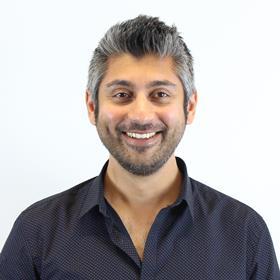
Farhan Urfi
Creative director, Small Back Room
I believe the industry will become more ‘human’ in 2020. In recent years, the sector has become better at listening and I hope this trend will continue. This will help us move even further away from the old ‘build it and they will come’ approach and closer to a human-centric model. I expect to see an increased emphasis on creating environments with a sense of belonging and places with a sense of identity.
Our collective challenge is to meet the desire that everyone has to feel part of something. Intergenerational living will continue to take shape as an idea. These organically evolved communities resembling family units are not neat or segmented; they are a bit messy but us humans seem to prefer it like this. The industry is starting to get how important this is now.
Resolutions: To help clients understand, adapt to and navigate this new landscape. I want to encourage people to avoid the trap of assuming that there are organised pathways that arrive at predetermined destinations. It sounds chaotic – but that’s creative problem-solving for you.
It doesn’t mean you won’t get to where you need to, but it might mean you get there a different way. The art of place and development branding lies in aligning the promise with the experience – and nothing is changing faster than how we experience the spaces around us. I also want to drink more water.
2020 vision: predictions for the year ahead
- 1
- 2
- 3
- 4
- 5
- 6
- 7
 Currently reading
Currently reading2020 vision: predictions for the year ahead (part seven)
- 8
- 9
- 10
- 11
- 12
- 13
- 14
- 15
- 16
- 17














































No comments yet